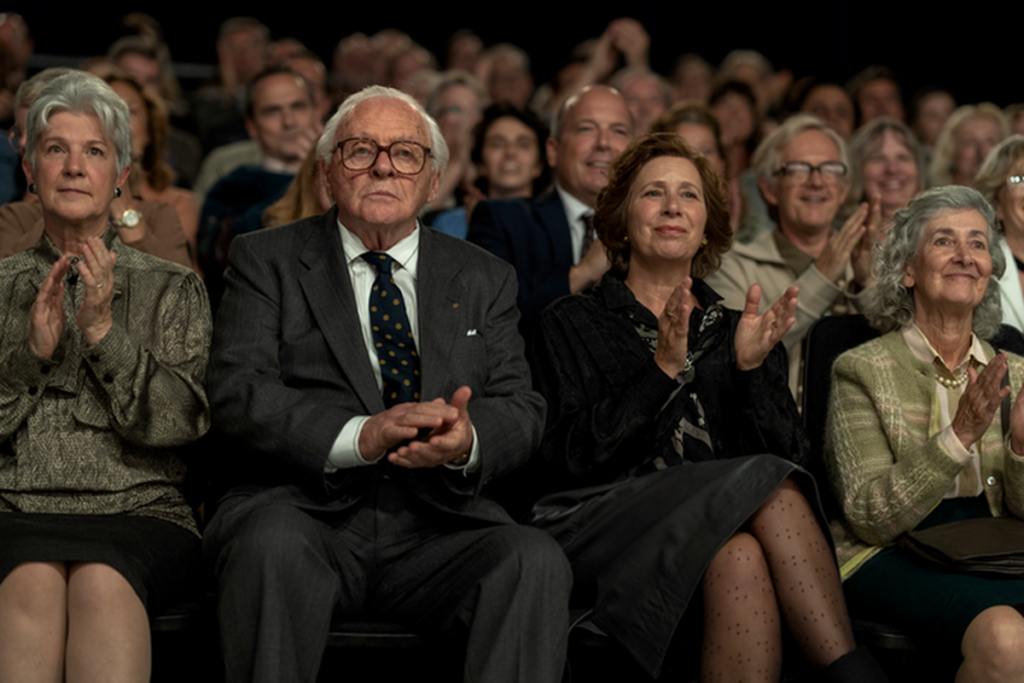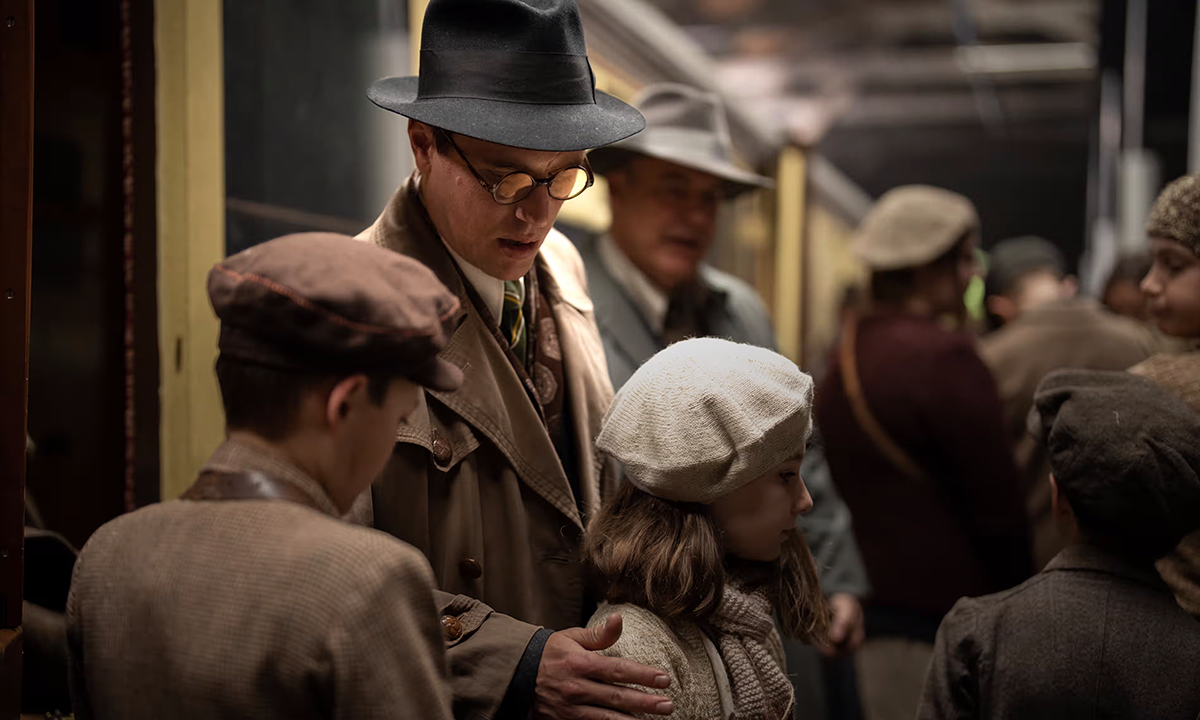Harrowing expressions on the faces of refugee children stare back at the audience, reminding us that without immediate international intervention they will become collateral damage. For me, the emotion of that image is the biggest takeaway of James Hawes’ latest project, One Life.
The film, which is based on the real-life of London stockbroker and humanitarian activist Nicholas ‘Nicky’ Winton, unveils the arduous task facing the 1938/1939 British Committee for Refugees in Czechoslovakia (BCRC) to rescue thousands of children whose families were fleeing Nazi invasion. Known as the Kindertransport program, the plan – under the approval of the British Parliament – facilitated the timely rescue of approximately “10,000 German, Polish, Czech, and Austrian Jews under 17 years of age” to safety in England. Initially, the idea was that they would be placed in foster homes until they could be reunited with their families. Of course, history tells us that for many, this never happened as millions perished during the Holocaust.
While naturally, anyone who has an ounce of humanity will agree Hitler’s reign of terror was atrocious, I kept catching myself whispering “never again” over and over again in my seat.
One of our first hints of what’s to come in One Life is in the scene where a 29-year-old Winton (played by Johnny Flynn) arrives in Prague on his first day at a refugee camp. When a little girl approaches him to ask for candy, he pulls out a bar of chocolate and breaking off a piece, is quickly overwhelmed by the group of kids rushing over, begging for a bit of the precious treat. After carefully breaking the bar into little pieces, Winton’s pain is palpable as he spots a young girl, standing in the back of the group, carrying an infant. The despair written all over her face – there is no chocolate left – is about much more than a piece of candy.
Indeed, how can it not be? What will happen to the baby’s mother and family? These questions made me reflect on the war on Gaza. Watching One Life, it was impossible for me to not recall the traumatizing images of displaced families and severely wounded (or dead) children circulated online.
Seeing the group of youngsters surrounding Winton, my mind flashed a similar picture: the faces of dozens of hungry Palestinian children with containers in their small, outstretched hands as they eagerly waited for aid workers to put a bit of food in them.
In the film, we sit anxiously glued to the screen watching Winton and members of the BCRC scramble to gather necessary immigration documentation (photos, passports, British sponsors, plus the [then] associated fee of GBP50). Over eight decades ago, England ensured the safe passage of those [largely Jewish] refugee minors to cross its borders.

But, where is the commitment and solidarity today? Not only is the British government directly linked to the colonization and illegal settlement of Palestinian land (i.e., revisit the infamous 1917 Balfour Declaration), but it neither recognizes the State of Palestine nor does it have an official plan to expedite the admission of Palestinian refugees in dire need of a safe haven from the atrocities committed against them at the hands of the [U.S. and British-backed] Israeli government.
It’s important to also note that according to the Migration Observatory, after the 2022 Russian invasion of Ukraine, “around 174,000 people had moved to the UK under the Ukraine Family Scheme and Ukraine Sponsorship Scheme.” In contrast, around the same time, Al Jazeera reported, “The British government’s plans to deport asylum seekers to Rwanda have finally been approved by parliament.” See a pattern here?
But back to the movie.
As much as I attempted to sympathize with the elder 79-year-old Winton’s (played by Anthony Hopkins) feelings of guilt and regret at being unable to rescue more children (the program saved 669 young lives), I can’t help but continue to ask myself, “Who will rescue the Palestinian children?” Because “never again” means now and a future film about what the world allowed to happen to Palestine won’t be able to feature the rescue of the precious lives of children of color, at least not by the Wintons of the world.

